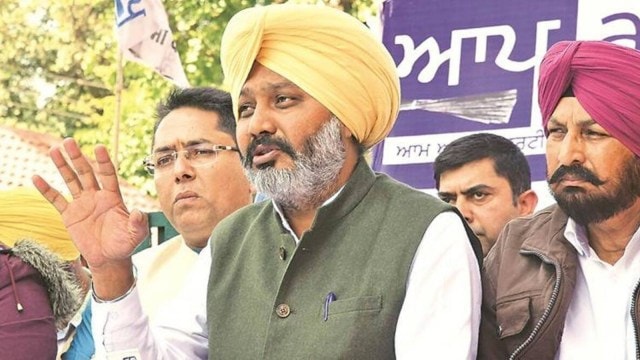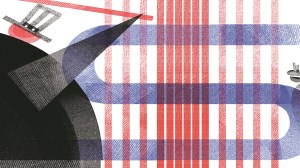Following GST Council’s change in slabs, Cheema says Punjab will face losses up to Rs 6,000 cr annually
The GST Council’s decision on Wednesday has scrapped the 12 per cent and 2 8 per cent slabs, moving most goods to lower tax brackets. Punjab’s Finance Minister Harpal Singh Cheema said that this could cost the state a drop in revenue by 20 per cent.
 The Finance Minister had earlier said that it is the considered recommendation of the states that rate rationalisation should be supported by a robust revenue protection framework.
The Finance Minister had earlier said that it is the considered recommendation of the states that rate rationalisation should be supported by a robust revenue protection framework. With a revamp of GST slabs, cash-strapped Punjab is staring at a financial loss of Rs 4,000-6,000 crore in its revenue, claimed the state Finance Minister. The overhaul, set to simplify tax slabs from four to two — 5 per cent and 18 per cent — with a 40 per cent levy on sin and luxury goods, promises cheaper goods for households and farmers, but threatens to increase the input cost of power for the already subsidy-burdened state.
The GST Council’s decision on Wednesday has scrapped the 12 per cent and 2 8 per cent slabs, moving most goods to lower tax brackets. Punjab’s Finance Minister Harpal Singh Cheema said that this could cost the state a drop in revenue by 20 per cent.
“This is a blow to our fiscal structure,” Cheema told The Indian Express, adding that this may mean a loss at Rs 4,000-6,000 crore annually. It will be a hit for the state that has targeted a GST collection of Rs 27,650 crore. Last fiscal, the target was Rs 25,700 crore, but only Rs 25,200 crore were added in the Punjab government’s coffers.
The GST on coal has also been enhanced from 12 per cent to 18 per cent. This hike will inflate power generation costs. “This would certainly push costs up further,” an official of the government said, stating that it remains to be seen whether the government will be able to take this hit or will be passed on to the consumers.
Punjab also has an annual power subsidy bill of Rs 20,200 crore. If the input cost of power production rises, either the government will have to bear it or it will have to be transferred to the consumers. “We do not know yet how much it will cost us extra. We will calculate it. But we will not pass on the cost to the public. We are giving 300 units free to the consumers. We are giving free power to the farmers,” the Finance Minister said.
If the government decides to bear the cost, the power subsidy bill will go further up. It will then strain an already stretched exchequer. The Punjab’s Finance Department fears the revenue shortfall could choke funding for welfare schemes and development. “We are already facing the worst floods. We will spend a lot of capex on rebuilding and repairing instead of new projects,” an official said.
Farmers, who benefit from reduced GST on fertilisers and tractors, reduced to 5 per cent from 12, may see some relief.
With the GST revamp, Punjab has demanded a compensation mechanism, proposing 2024-2025 as the base year for revenue protection and an additional levy on sin goods to cushion losses. “Without compensation, we’re looking at a fiscal crisis,” Cheema said.
He stressed that if the current proposal for price rationalisation is implemented without a provision for compensation to cover revenue loss, it will lead to financial instability in the states and harm the country;s federal structure, which is “unacceptable”.
The Finance Minister had earlier said that it is the considered recommendation of the states that rate rationalisation should be supported by a robust revenue protection framework. Only such a balanced approach will protect the fiscal autonomy of states while advancing the objectives of GST reform in the true spirit of cooperative federalism.
He said that GST was rolled out in July 2017 and the principle of revenue neutrality was central to this design but after its implementation, states have to face significant revenue losses, saying that Punjab itself bore financial losses of around Rs 1.11 lakh crore.
Though the state received Rs 60,000 crore when the compensation cess was active, but till date no step has been taken on part of the centre government to compensate the remaining loss amounting to Rs 50,000 crore to Punjab, the Finance Minister highlighted.
“Without revenue stabilisation, how can the states perform their constitutional duty of social welfare? The Centre should not incline towards the theory of shifting the burden on the shoulders of the states and retain the revenues with itself. If the states are financially strong only then they can play a pivotal role in further strengthening the country so the revenue interests of all the states must be protected and robust mechanism should be made in achieving this goal,” he had earlier stated.







